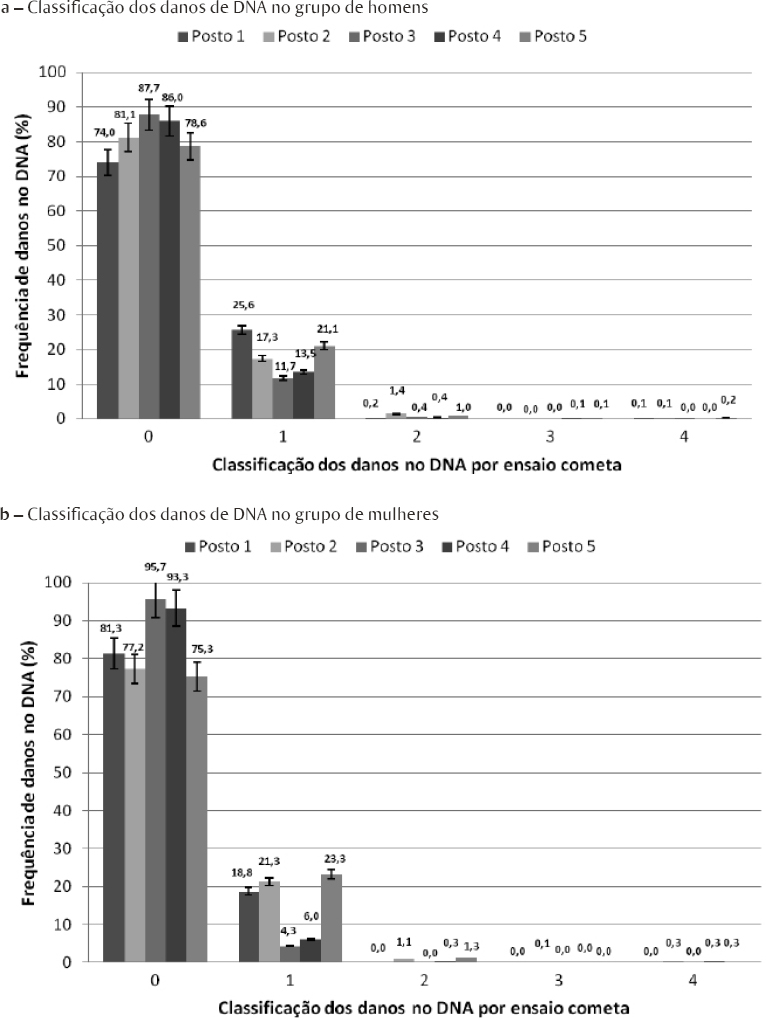Abstract
Introduction:
gas station workers are exposed to several chemicals in their workplace, highlighting benzene, due to its carcinogenic properties.
Objective:
to assess the genotoxic damage related to occupational exposure to BTEX (benzene, toluene, ethylbenzene, xylenes) in workers of five gas stations in Rio de Janeiro, RJ.
Methods:
analysis of BTEX concentrations in the air were carried out; as well as activities of catalase and glutathione S-transferase; and comet assay in whole blood samples of 97 workers.
Results:
BTEX levels were within the Brazilian threshold levels recommended by the NR 15, including Annex 13-A. However, an oscillation of the comet assay results was observed among workers of different gas stations, mainly in workers from gas stations with lower concentrations of benzene.
Discussion:
this result is in accordance with the current international scientific literature that indicates a supralinear exposure-response curve for benzene. In lower concentrations we could observe a high non-linear risk of leukemia, probably due to a greater benzene metabolism and a higher production of its toxic metabolites.
Conclusion:
the results of this study suggest that exposure to BTEX, even in low concentrations, contributes to genotoxic risk to human health.
Keywords:
occupational health; gas stations; BTEX; comet assay; oxidative stress

